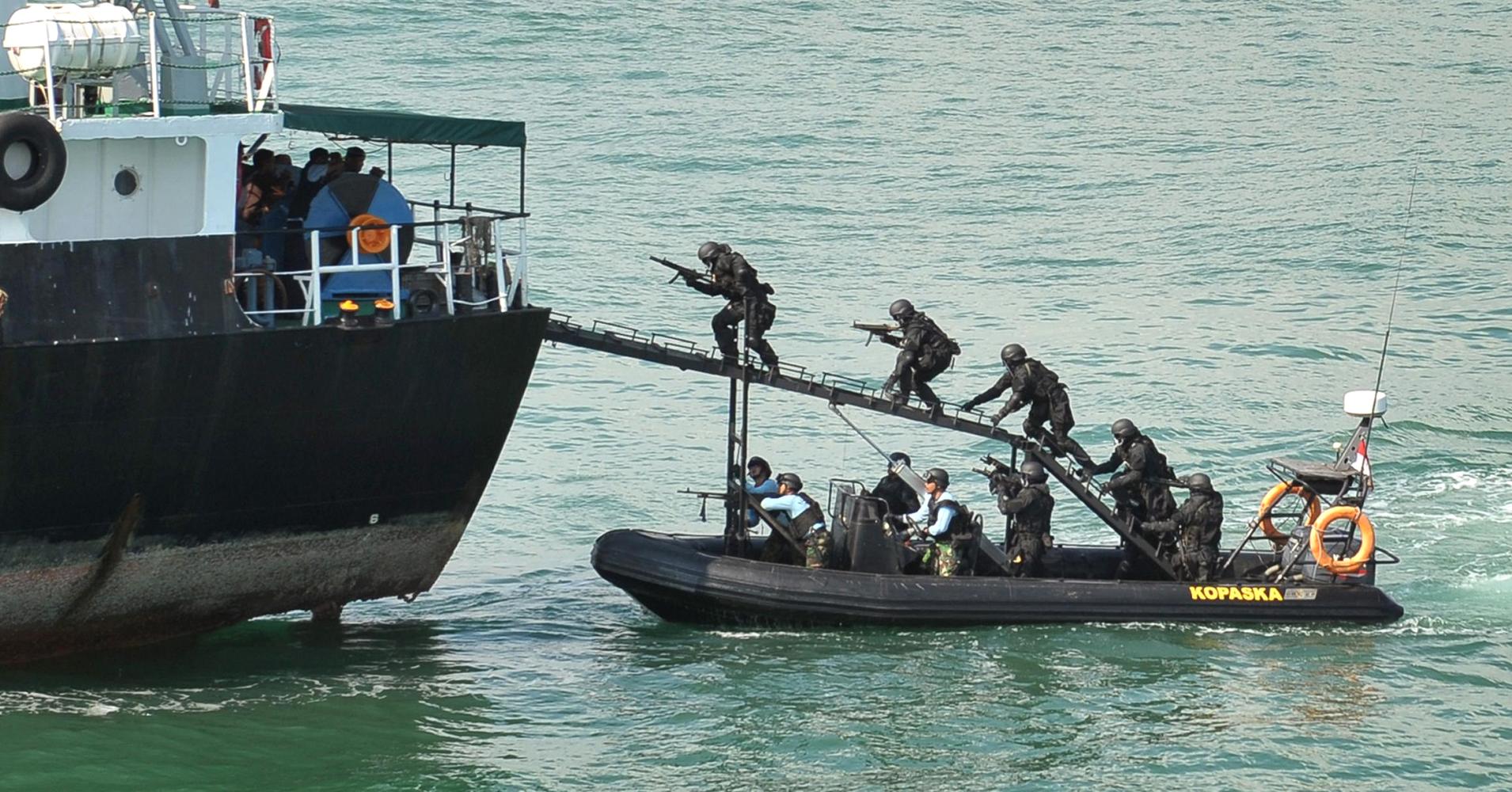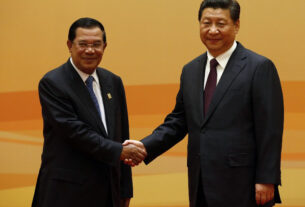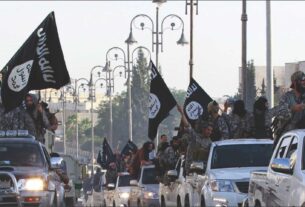Surge of terrorism in MENA region and Africa
The rise of ISIS and Al Qaeda in the whole of MENA region and other parts of Africa will witness a grappling surge in their activities as the competition for aligning new members and young recruits are taking place in a war footing manner.
The Islamic State has faced significant defeats in Africa over the past year but political instability across the northern and western regions could offer a ripe breeding ground for the terrorist group to resurge, according to various local reports.
ISIS over the past eight years has taken advantage of the political vacuum left by the 2011 toppling of Libyan dictator Muammar Gaddafi and the ongoing civil war between two rival governments in Tripoli and Tobruk that has left large swaths of ungoverned territory.
ISIS has been losing ground in recent months in the Libyan city Sirte, the terror group’s last major command-and-control center for operations in North and West Africa, but the group still maintains a sizable contingent of fighters in Libya.
Those remaining fighters could be mobilized to perpetuate terrorist attacks in the region as they are now recruiting new members into their fold.
Jihadists who were operating in the western Libyan city of Sebratha were forced to move operational networks into Tunisia after US airstrikes in February 2016 decimated ISIS targets in the region.
ISIS resurgence
Some of the estimated 1,000 Tunisians who were fighting with ISIS in Libya will return home to connect with the Tunisia-based cells.
One can see a couple of major attacks within these last few years on tourist targets in Tunisia and terrorist threats on tourism represent an existential threat to the state and this threat could send the economy in a tailspin and create a situation where jihadists are able to grow.
Nigeria and Mali are also particularly vulnerable to an ISIS resurgence emanating from the return of foreign fighters from Libya.
While the Nigerian militant group Boko Haram, also known as ISIS’s West Africa Province (ISWAP), has weakened amid internal rifts, local reports warn that Sub-Saharan African ISIS fighters fleeing Libya could reinforce the group and link militants in Nigeria and Niger to networks outside of the Lake Chad region.
Jihadists flocking from Sirte to Mali meanwhile will likely come in contact with both Al Qaeda in the Islamic Maghreb and an ISIS faction in the country headed by a former Al Qaeda commander who defected.
Both militant groups would benefit from the integration of ISIS foreign fighters and potential collaboration with ISWAP.
While ISIS is certainly going to make efforts to carry out further attacks in Africa, the weakening of ISIS in Iraq and Syria will in the medium-to-long-term reduce the extent to which the group can spread in Africa.
ISIS may surge in the short-term, but their reduced resources prevent them from spreading the way they did in Iraq and Syria.
While ISIS has carried out a series of large-scale attacks in recent years, Al Qaeda has sat in the shadows to avoid drawing attention to themselves from international counterterrorism efforts. this has allowed the group to maintain a deeply rooted network across both the Middle East and Africa.
Officially, the so-called Islamic State (widely known as ISIS) is on the run: its manpower reduced in the Middle East, its troops pushed out of their Libyan strongholds.
Former US president Obama, who conceded that bungling the aftermath of the 2011 Libyan intervention was the “worst mistake” of his presidency, the gains made in North Africa represent an eleventh hour redemption.
Headlines are declaring that ISIS is in retreat. But the question to ask is: retreat to where?
An ISIS supporter identifies Libya as a strategic gateway from which pandemonium could be wrought in the southern Europe. Even more than Syria, the fate of Libya is likely to color the President Trump’s foreign policy.
While Syria has been a whirlpool, sucking in the most toxic elements in the region, Libya is a sandstorm, spreading its mayhem outward. According to the ISIS supporter’s essay, Libya is the key to Egypt, the key to Tunisia, Sudan, Mali, Algeria and Niger too.
Among the many mistakes made during the 2011 intervention, a significant blunder was the failure to ask where Gaddafi’s supporters had fled.
Within months, hundreds of Tuareg combatants turned up in Mali, bearing machine guns and portable missile systems from Gaddafi’s stockpiles.
Long-standing smuggling routes have been hijacked—the same routes that will carry ISIS deeper into Africa.
The jihadist groups operating in Mali saw no limit to their territorial ambitions, and nor does the Islamic State; the difference is that ISIS has real financial clout, operating capability, and a powerful brand.
Territorial ambitions
If it can break through the dusty membrane of the Sahel, it will have access to sub-Saharan Africa and the potential to reach across the continent, exploiting a tangle of marginalized communities, just as it exploited the Anbar tribes of Iraq and Gaddafi’s support base in Libya.
Even during US election rallies, Donald Trump’s Libya pronouncements were as inconsistent as his migration mathematics or his position on NATO. He swings from one charge to another and he advocates an escalation in US military involvement, to bragging of his business links with Colonel Gaddafi.
In either way, it does not bode well for America’s power-broking role in the region. This is problematic, because positive leadership is needed, now more than ever. ISIS needs to be contained, not displaced.
Key to this is securing the backing of local leadership, from tribal chiefs to national governments, quashing corruption, and improving the quality, not the rate, of investment.
Billions of dollars have been thrown at too many countries in North Africa, without benefiting the most destitute, vulnerable communities.
On an international level, care must be taken to avoid the proxy warmongering that has destroyed Syria. There, a horrific parody of the Cold War braces Russian fighter jets and CIA-backed rebels against the long-running Sunni-Shia saga led by Saudi Arabia and Iran.
A nation once celebrated for diversity, now fettered by sectarianism, is drowning under the “superpower” chess game played across its surface. Africa is next.
Saudi Arabia and other Gulf states have been spreading their influence, funding Wahabist preachers, supplying the welfare that local governments are too tangled in corruption to dish out.
China’s economic presence levers infrastructural investment against the exploitation of cheap labor and resources.
France has a huge role in West Africa, where its three-and-a-half-year-long military campaign is motivated, in part, by the uranium mines in Niger (which provide a third of the uranium for its lucrative nuclear industry). Anyone who thinks North Africa has not got proxy war potential needs to look at the map again.
Other players are gathering, lured by North Africa’s untapped resources. The region has tremendous economic promise, however jittery the political forecast.
But tackling its problems are key. The West benefits from its uranium, phosphorus, oil, and other resources, but also feels the impact from jihadism, narco-trafficking, and mass migration.
Now Morocco is on their radar. Morocco is fast becoming an autocracy. The country passed a new constitution in 2011 after citizens were riled by the Arab Spring but the gesture has ultimately proved to be an empty attempt at appeasement.
The monarchy remains rigid and in complete control, citizens are becoming restless, and ISIS jihadists are beginning to infiltrate the country.
Reformers in North Africa toppled the Egyptian government; those in Syria sparked a battle that wages on today.
Moroccans forged what was thought at the time to be a middle path. The monarchy remained, but divested of many of its expansive powers. Parliament was empowered.
King Mohammad VI calmed the protests quaking across Morocco with the introduction of a constitution. Over 98 percent of voters approved the measure.
A new opposition party, Islamist Justice and Development Party (PJD), immediately swept into power but the monarch made a deal from behind.
Need for reforms
Thus, excitement at the “reforms” was short-lived. The monarchy never loosened its grip on power and in the years subsequent to the constitution’s introduction the lives of average Moroccans became worse than before.
Morocco is frequently held up as a success, that the government did the right thing. A new constitution is huge, but it is a constitution on paper.
They were superficial and were there to show people that the king was doing something, and it worked for a while. But it is clear that it was not enough.
Unemployment still stands at over 10 percent. Youth job prospects are even grimmer. The newly-formed government has not held itself accountable to enforcing the constitution’s laws.
Instead the government has busied itself with quieting the press and stifling free speech. A law criminalizing journalists critical of the monarchy was repealed to much fanfare, only for people to realize that another law punishing private citizens for “shaking the loyalty that citizens owe to the state” remained on the books. The “crime” carries a sentence of 5 years in prison.
A troubled, angry population is fertile ground for ISIS recruiters. The Muslim-majority country has long been bothered by religious extremists. Young, unemployed Muslims unable to feel powerful in their own lives are highly susceptible to fanaticism. Becoming a “holy warrior” grants you an identity.
Now, ISIS has rapidly been accumulating power in Northern Africa. Boko Haram, a vicious affiliate group born in Nigeria, slaughtered more innocents in Africa than ISIS did in the whole rest of the world. The merging of the two groups would prove disastrous.
The Horn of Africa lacks the strong government needed to expel terrorists from their borders. Boko Haram rose to prominence unimpeded by Nigerian officials. The government was only roused to action after the fighters kidnapped dozens of terrified schoolgirls.
Moroccans are once again pouring onto the streets. The government crackdown impinges every facet of life. Encrypted messages are forbidden. Skype, Facebook Messenger, and Whatsapp are banned. News outlets are rigidly controlled. The contentious situation is liable to explode any day. And when it does, ISIS will be there ready to take advantage of the chaos.
Arab democracies have failed. Conservative Islam is not amenable to secularism. If Morocco becomes a failed state, it will only serve to further empower the region’s terrorist groups. An unholy alliance between Boko Haram and ISIS, spread across Northern Africa, is terrible to imagine.




